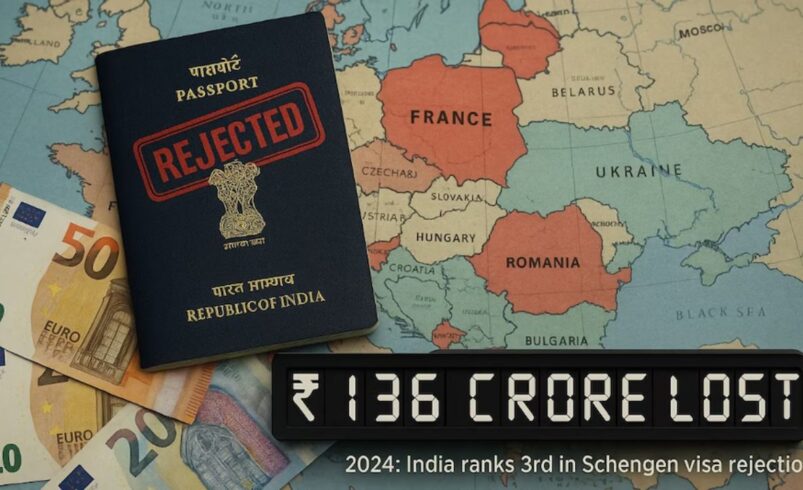Global index provider FTSE Russell has significantly reduced the investability weighting of Eternal—the parent company of Zomato—from 82.7% to 49.5%. This move is expected to cause a potential capital outflow of ₹3,235 crore (approximately $379.8 million), according to brokerage estimates by IIFL Capital. The trigger behind FTSE’s revision was Eternal’s own decision to cap foreign ownership at 49.5%, a strategic move aimed at gaining Indian Owned and Controlled Company (IOCC) status. Such a change will allow its quick commerce arm, Blinkit, to shift from a marketplace model to an inventory ownership model. While the decision may have long-term benefits, it poses immediate consequences on Eternal’s stock movement and institutional investment.
Capping Foreign Ownership to Drive Business Resilience
Eternal’s decision to limit foreign ownership was not abrupt. In its Q4 shareholder letter, CFO Akshant Goyal highlighted that this move aligns with their strategy to make the business more resilient. The transition of Blinkit to an inventory-led model is central to this vision. By owning inventory directly, Eternal aims to gain better control over supply chains, delivery timelines, and cost structures. This move is significant in the context of the highly competitive quick commerce space, where operational efficiency and agility define market leaders. However, while the operational pivot is welcomed, it has inadvertently led to Eternal’s removal from the top tier of investable companies in global indices, which could pressure its share price in the short term.
More Index Reductions Looming: MSCI May Follow Suit
According to NDTV Profit, another major index provider, MSCI, is also likely to reduce Eternal’s weight in its next update after May 30. IIFL Capital estimates that this could cause a further outflow of around ₹3,917 crore ($460 million). Index-linked funds that mirror FTSE or MSCI are obliged to adjust their portfolios accordingly, meaning large-scale sell-offs of Eternal shares. This domino effect could place additional pressure on Eternal’s stock despite its operational and strategic shifts. It’s a classic trade-off scenario where long-term gains in business model evolution come at the expense of short-term stock performance and investor sentiment.
Performance Reveals Mixed Signals Across Business Segments
Financially, Eternal reported a 77.8% YoY decline in net profit, recording ₹39 crore in Q4 FY25 versus ₹175 crore in the same quarter last year. However, operating revenue witnessed a robust 64% growth, reaching ₹5,833 crore. The narrow profit margin was mainly supported by an “other income” of ₹368 crore; otherwise, the company would have registered a loss of ₹271 crore before tax. The quick commerce arm Blinkit saw its top-line double to ₹1,709 crore, yet its adjusted EBITDA loss widened substantially to ₹178 crore. The expansion of 294 new dark stores brought its total to 1,301, reflecting aggressive growth plans, but also high operational costs. Zomato’s food delivery arm, on the other hand, reported a mere 2% sequential EBITDA growth, indicating softness in the core business.
Market Reaction & Outlook: Short-Term Hit, Long-Term Bet?
Despite the index-related turmoil and profit contraction, Eternal’s shares closed 3.60% higher at ₹237.45 on the BSE, signaling some market confidence in its long-term strategy. The company continues to invest heavily in Blinkit, betting big on the future of quick commerce. However, the road ahead will require Eternal to balance growth with profitability, especially as institutional investors adjust holdings due to index rebalancing. Moreover, addressing delivery partner shortages and refining its restaurant compliance policy will be crucial to reviving growth in its food delivery segment. While Eternal may face short-term headwinds from index exits and rising costs, its strategic pivot to inventory ownership and continued revenue growth suggest potential for long-term gains if executed efficiently.
Get the latest in business, markets, startups, and policy—visit businessnewsindia.in for in-depth updates and follow us on Instagram @businessnewsindia.in for daily bites of what matters most.
Source : inc42.com









